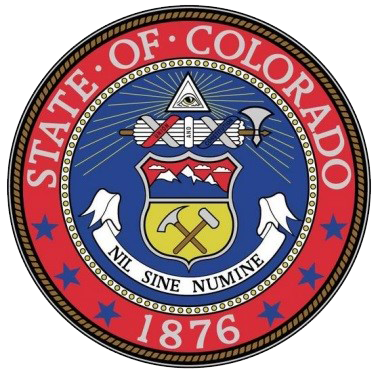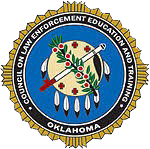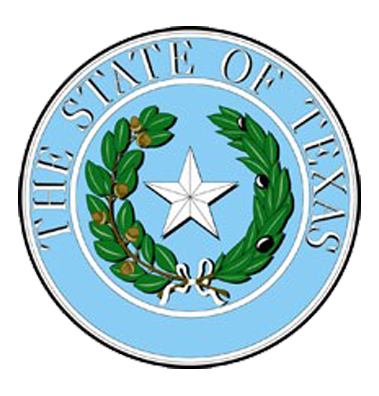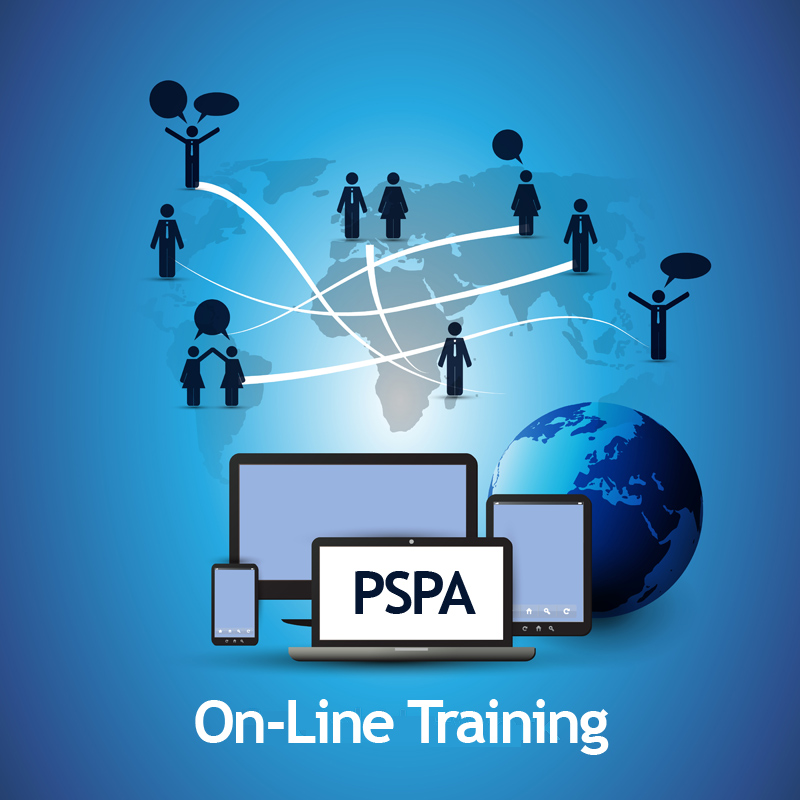PSPA Administered
State Required Training & Continuing Education
Overview
Private Security plays a significant role in the day-to-day protection of people and assets. The steadfast growth in Private Security coupled with the broadened responsibilities placed upon the Private Security sector, further necessitates the effective hiring, training and deployment of educated security personnel to accomplish the needs of the industry and those served by the industry.
Private Security Professionals must be well trained and knowledgeable. They must have available to them up-to-date employer resources including but not limited to policies and procedures applicable to each job-at-hand in addition to accessible and effective senior and/or executive level operational and legal guidance. The ability to understand and comply with today’s ever-changing laws, rules, and regulations, coupled with job-site-specific policies and procedures is paramount to the success of the Private Security Professional and those with whom he/she serves.
PSPA advocates that all private security professionals meet all applicable federal, state, and local requirement(s) prior to any deployment for work. Additionally, PSPA advocates that all Private Security Professionals acquire and retain all requisite educational skillsets and hands-on field training necessary to lawfully, safely and effectively perform all general, as well as, site-specific job requirements, policies, procedures and best practices prior to any deployment for work.
Introduction
Currently, a majority of States requires an occupational license to: (1.) work as a private security professional [i.e., security officer, security supervisor, and/or security manager] and/or (2.) operate a security agency or proprietary security department [i.e., business owner, business shareholder, business manager, and/or business agent] and conversely, some States have no requirements. Occupational licenses, permits, and/or commissions may include, but not be limited to: a formal application process, criminal background check, finger-print submission, drug testing, and mandated training.
Currently, each state within the United States operates independently from one another and maintains its own private security licensing requirements (or lack thereof).
It is the responsibility of all practitioners (individuals and business alike) to know, understand, and abide-by-the-law as it pertains to occupational requirements within each State, City, and/or jurisdiction where private security services are provided.
State-by-State Requirements
Occupational licensing requirements, when mandated, can vary greatly from jurisdiction-to-jurisdiction. Licensing compliance is generally a responsibility of both the employer and employee. The process of managing occupational license holders within a propriety security department as well as contract security agency can be complicated and time consuming.
With this said, it becomes common practice for employers to outsource (utilize the services of third-party vendor(s) to assist in meeting the licensing requirements for new-hire personnel as well as tenured license holders who are required to meet continuing education requirements, handgun proficiency testing and renewal fees to name just a few.
“PSPA” - Training and Certification Programs
PSPA provides on-line (internet based) training and testing to fulfil a variety of new-hire as well as continuing educational requirements. PSPA Training and Certification programs are accepted by many institutions, organizations as well as public and private businesses as Continuing Education Credits (CEU’s). For a comprehensive list and full description of all PSPA Training and Certification Programs, please visit our home page and right-click under our menu of “Services & Benefits” for details.
Note: Due to the ever-changing requirements of public and private regulators, it is the sole responsibility of Member User to determine the Educational and CEU applicability and/or acceptance criteria for each PSPA Training or Certification Program.
“PSPA Administered” - State Required Training & Continuing Education
“State Required” Training and Continuing Education Programs are administered by PSPA as follows: (1.) As a third-party with all or part of the content furnished to PSPA by each State’s authorized licensing jurisdiction and/or (2.) By PSPA with all or part of the content Owned & Copyrighted© by PSPA and subsequently administered under the approval of each State’s authorized licensing jurisdiction.
A State Required "Training Program” is defined; in non-technical/legal language as follows: A prerequisite program that generally must be successfully completed prior to becoming eligible for employment as a security professional (security guard/security officer).
A State Required "Continuing Education Program” is defined; in non-technical/legal language as follows: A requisite program that generally must be successfully completed prior to the renewal of a security professionals (security guard/security officer) license.
All State Required Training and Continuing Education “Examinations” are graded on a Pass/Fail basis. Certificates of completion can be downloaded and printed within minutes after successful completion. Certificates of completion will be posted into the PSPA Member Biography and available for view by all PSPA Individual and Business Members, should member select that option.
Note: Not all States (regulatory jurisdictions) offer the option of On-Line Training as a number of scholastic disciplines are best taught within a classroom environment coupled with hands-on instructor guidance as is the case in handgun education and handgun proficiency training.
Note: We have listed below all On-Line State Required Training and Continuing Education Programs administered through our organization. While we do not administer all available On-Line State Required Training and Continuing Education Programs we look to periodically add new programs based upon a number of variables including, but not limited to: PSPA Business Member requests and forecasted volume of use. In the event you are a PSPA Business Member and do not see a program your firm is interested in using and you understand the program is available for On-Line Administration, please feel free to contact us as we welcome your dialogue.
NOTE: Due to the ever-changing requirements of public and private regulators, it is the sole responsibility of each Member User to determine the Educational and CEU applicability as well as Acceptance Criteria for each PSPA administered program.
State Required Training and Continuing Education (CE) Programs:
The below list (alphabetical by State) comprises all On-Line State Required Training and Continuing Education Programs administered through PSPA.
PSPA maintains applicable authorization (commission, license and/or permit) required by State (law and/or governing jurisdiction) to administer each program.
Program specifics, including but not limited to: State License, Course Description, Course Hours and/or Continuing Education Units (CEU’s) etc., where applicable, is published below for your information and review.
Examination Instructions:
All below listed Programs and Examinations require the reading of text and the successful completion of a multiple choice examination, unless otherwise stated. The estimated time to successfully complete a program varies based upon an individual’s overall educational ability and pre-existing industry experience. There are no time limits for completing a program however we recommend completing an entire program during one (1) uninterrupted session or within one (1) day or twenty four (24) hours.
State Required Training and Continuing Education Programs are available to all “Registered” Individual Members of PSPA. The cost of each course is noted below. The payment or the use of a pre-approved PSPA Corporate Identification Number (CIN) Code is due only upon successful completion of the entire program. Certificates of Completion (denoting program Hours/CEU’s (if applicable) are available immediately after receipt of payment.
COLORADO

The State of Colorado
City of Denver
Excise & Licenses
201 W. Colfax Ave., Dept. 206
Denver, Colorado 80202
www.denvergov.org/content/denvergov/
en/denver-business-licensing-center/
security-services.html
Denver Excise and Licenses requires that all "security guards" (also known as, and referred to herein as: security officers, security professionals, and private security professionals) complete an approved sixteen (16) hour training program; prior to submittal of a new license application.
Under authority granted by Denver Excise and Licenses, PSPA administers the below approved (5 Part) training program, titled, Security Guard Basics - Denver New License.
Security Guard Basics - Denver New License Training
| Part (1 of 5) - The Basics | Fundamental Awareness | 8 Credit Hours | $55.00 | |
| Part (2 of 5) - Workplace Safety | Fundamental Awareness | 3 Credit Hours | $10.00 | |
| Part (3 of 5) - Workplace Risk | Fundamental Awareness | 2 Credit Hours | $10.00 | |
| Part (4 of 5) - Improving Workplace Security | 2 Credit Hours | $10.00 | |
|
Prerequisite > Successful completion of Parts (1, 2 & 3 of 5) |
|||
| Part (5 of 5) - Communications | Report Writing | 1 Credit Hour | $10.00 | |
|
Prerequisite > Successful completion of Parts (1, 2, 3 & 4 of 5) |
|||
Denver Excise and Licenses requires that all "security guards" (also known as, and referred to herein as: security officers, security professionals, and private security professionals) complete an approved eight (8) hour continuing education program; prior to submittal of a renewal license application, and annually thereafter prior to submittal of a renewal license application.
Under authority granted by Denver Excise and Licenses, PSPA administers the below approved training program, titled, Security Guard Basics - Denver Renewal.
Security Guard Basics - Denver Renewal Training
| Security Guard Basics - Denver Renewal | 8 Credit Hours | $55.00 | |
GEORGIA

The State of Georgia
Georgia Secretary of State
Professional Licensing Boards Division
Georgia Board of Private Detective and Security Agencies
237 Coliseum Dr., Macon, GA 31217
www.sos.ga.gov/plb/detective
The Georgia Secretary of State, Professional Licensing Boards Division, Georgia Board of Private Detective and Security Agencies requires that all "Security Professionals" (also known as, and referred to herein as: private security professionals, security professionals, security officers, security supervisors, and security managers) complete board approved Training, comprising a minimum of twenty-four (24) hours; prior to submittal of a new license application.
Under the below instructor license, granted by the Georgia Board of Private Detective and Security Agencies, PSPA administers this approved training program, titled, BASIC SECURITY TRAINING PROGRAM.
GEORGIA LICENSE: #CLTR001190
GEORGIA - BASIC SECURITY TRAINING PROGRAM
The Georgia (24-Hour) BASIC SECURITY TRAINING PROGRAM comprises a Seven (7) part Lesion Plan as follows:
| Part 1 of 7 | Role of Private Security | 4 Hours |
| Part 2 of 7 | Legal Aspects | 4 Hours |
| Part 3 of 7 | Patrol and Observation | 4 Hours |
| Part 4 of 7 | Incident Response | 4 Hours |
| Part 5 of 7 | Security Resources | 4 Hours |
| Part 6 of 7 | Customer Service Issues | 2 Hours |
| Part 7 of 7 | First Aid Overview | 2 Hours |
| GRAND TOTAL HOURS | 24 Hours | |
The estimated time to complete each Lesson Plan, as described above, can vary based upon an individual’s overall educational ability and pre-existing industry experience. There are no time limits for completion however we recommend each Lesson Plan be completed in its entirety within one day (1) day or twenty four (24) hours. Participants can START and STOP (take breaks) at any point however we recommend completing an entire Lesson Plan or Individual Module before stopping to help ensure the retention of information and ability to successfully pass each exam question.
This state approved, BASIC SECURITY TRAINING PROGRAM is available to all “Registered” Individual Members of PSPA. The payment of Fifty Five Dollars ($55.00) or the use of a pre-approved Corporate Identification Number (CIN) Code is due only upon successful completion of the entire course. Certificates of Completion (denoting 24 Hours) are available immediately after receipt of payment.
A proficiency score of Eighty (80%) Percent is required to Successfully Pass the entire Training program.
The entire training program comprises Seven (7) Lesson Plans (as described above) totaling 41 Modules and 250 Exam Questions.
| Basic Security Training Program | 24 Hours | $55.00 | |
OKLAHOMA

The State of Oklahoma
Council on Law Enforcement
Education and Training
(CLEET)
2401 Egypt Road
Ada, Oklahoma 74820-0669
www.ok.gov/cleet/
Council on Law Enforcement Education and Training (CLEET)
The Council on Law Enforcement Education and Training (CLEET) is a government law enforcement agency of the state of Oklahoma which supports Oklahoma's state, county, and local law enforcement agencies by providing education and training which promotes professionalism and enhances competency within the ranks of Oklahoma law enforcement.
CLEET is also charged with the licensing of “Security Guards” employed by the private security industry; and by administrative oversight, CLEET ensures that students and private security trainers meet minimum training standards as set forth by the Council.
The “Security Guard” license issued by CLEET is a multi-year year, renewable license. Applicants wanting to apply for a Security Guard license must first complete the necessary training, submit an application for a license, and undergo a finger print background check. To renew a license, the licensee must submit a renewal application and proof of continuing education, and either a notice of employment or current bond / insurance.
CLEET requires that all “Security Guard” Continuing Education (CE) requirements be met prior to license renewal and the CE Credits be procured through an Established Entity; to include, but not be limited to: a county, state, or federal association and/or a national or international association, to name just a few.
PSPA Training and Certification Programs are accepted by many Agencies, Institutions, and Organizations as accredited Training Hours and/or Continuing Education Credits (CEU’s).
Due to the ever-changing requirements of public and private regulators, it is recommended that members and visitors research CLEET CE Requirements prior to completion of any training program intended to be submitted to CLEET for CE Credits.
With this said, PSPA members can download “Sample” Certificates of Completion (prior to taking a course) for submittal to CLEET for applicability. Simply go to your Certificate Downloads (file folder) located in your “Virtual Office” and download the Certificate(s) of your choice for submittal.
Click the below Link to view or participate in a training program:
Click Here ► PSPA Training Programs
Council on Law Enforcement Education and Training (CLEET)
2401 Egypt Road
Ada, Oklahoma 74820-0669
Administrate Offices are open from (8:00 a.m. to 5:00 p.m.) Monday through Friday
Telephone Number / Private Security Division: 1 (405) 239-5110
Fax Number / Private Security Division: 1 (405) 239-5182
TEXAS

This company is licensed
and regulated by the
Texas Department of Public Safety
Regulatory Services Division
If you need to file a complaint,
please contact DPS via website, mail, or phone:
https://www.dps.texas.gov/rsd/contact/psb.aspx
P.O. Box 4087, Austin, Texas 78773-0001
512-424-7293
Texas Department of Public Safety
Regulatory Services Division / Private Security Program
The Department of Public Safety (DPS) regulates the private security profession in Texas. DPS protects the public by conducting fingerprint-based background checks on applicants, investigating and resolving complaints, and taking disciplinary action against licensees or seeking criminal prosecution of those who perform private security services without a license.
The private security profession includes armed and unarmed security guards, personal protection officers, private investigators, alarm systems installers and monitors, armored car couriers, electronic access control device installers, and locksmiths. DPS regulates the private security profession under the authority of the Texas Occupations Code, Chapter 1702 and the related administrative rules.
PSPA Administers the below training programs under license and authority, granted by the Texas Department of Public Safety – Regulatory Services Division.
TEXAS DPS-RSD LICENSES:
| Level III Training School | License: F04084101 |
| Continuing Education Training School | License: Y03050601 |
TEXAS DPS-RSD / Notice:
Please be advised, under the TEXAS DPS Private Security Act (Laws and Regulations AND Licensing & Registration) a criminal conviction may disqualify you from a registration, commission or license under the Act. You may wish to review the list of disqualifying offenses and the related periods of ineligibility, available on the department’s website at:
https://www.dps.texas.gov/rsd/psb/index.htm
You also have a right to request from the department a criminal history evaluation letter under the Texas Occupations Code, Chapter 1702 and the related administrative rules.
TRAINING PROGRAMS:
The TEXAS DPS-RSD “Level II Training Course” must be successfully completed by all security officer applicants.
Pursuant to TAC 35.141 the Level II Training Course and test is required of all* non-commissioned security officers, commissioned security officers and personal protection officers. This training course must either be administered by a licensed Level III or Level IV Training School and taught by a licensed Level III or Level IV Instructor, or it may be administered by a licensed guard company and taught by a representative or employee of the company.
*Certain Peace Officers may be exempt per TAC 35.141(b)
The Level II Training Course is an accredited Six (6) Hour curriculum. The estimated time to complete the course varies based upon an individual’s overall educational ability and pre-existing industry experience. There are no time limits for completion however we recommend the course be completed in its entirety during one uninterrupted session or within one (1) day or twenty four (24) hours.
A proficiency score of Seventy Five (75%) percent is required to pass the Thirty Two (32) question exam.
The payment of Fifty Five Dollars ($55.00) or the use of a pre-approved Corporate Identification Number (CIN) Code is due only upon successful completion of the entire course.
| TX - Level II Training Course | 6 Credit Hours | $55.00 | |
CONTINUING EDUCATION (CE) PROGRAMS:
Continuing Education Course(s) must be successfully completed prior to license renewal as per the State of Texas Administrative Code and Private Security Act.
Abridged Excerpts from the State of Texas are as follows:
An application to renew an individual license, may not be submitted until the required minimum hours of department approved continuing education credits have been earned in accordance with TAC 35.161. Proof of the required continuing education must be maintained by the employer and contained in the personnel file of the individual license holder's employing company. All individual license holders shall indicate they have completed the required minimum hours of department approved continuing education credits on their application for renewal.
All continuing education credits must be earned through department approved continuing education schools. Additionally, licensed companies with ten (10) or more licensed employees may make a written request for a letter of exemption allowing them to provide continuing education to those employees.
Specific Requirements include:
(a) An application to renew an individual license may not be submitted until the required minimum hours of department approved continuing education credits have been earned in accordance with the Act and this chapter. Proof of the required continuing education must be maintained by the employer and contained in the employee's personnel file. All individual licensees shall indicate they have completed the required minimum hours of department approved continuing education credits on their application for renewal.
(b) Owners, partners, and shareholders who hold individual licenses as owners only, shall complete a total of eight (8) hours of continuing education, including seven (7) hours in the subject matter that relates to the type of regulated service provided by their company, and one (1) hour of ethics. Noncommissioned security officers, and all individuals not required to obtain a commission or license under the Act are specifically exempted from the continuing education requirements.
(c) All individual license holders not otherwise addressed in this section shall complete a total of eight (8) hours of continuing education, seven (7) hours of which must be in subject matter that relates to the type of individual license held, and one (1) hour of which must cover ethics.
(g) Commissioned security officers and personal protection officers shall complete six (6) hours of continuing education by completing the renewal portions of the Level III or IV training course, as applicable. All continuing education for commissioned security officers and personal protection officers must be taught by department approved training schools and instructors. Commissioned security officers shall submit a firearms proficiency certificate along with the renewal application.
(m) Attendees of continuing education courses shall maintain certificates of completion furnished by the school director in their files for a period of two (2) years. Attendees shall furnish the department with copies of all certificates of completion upon request.
(n) Continuing education courses are only valid if completed within the two year period preceding the license's current expiration date.
Note: It is the sole responsibility of each Member User to determine the current Continuing Educational Requirements, Credit Hour Applicability, and Acceptance Criteria for all Registration Renewals and/or Renewal Applications. To confirm your specific Continuing Education (CE) Requirements, feel free to visit the Texas Department of Public Safety - Regulatory Services Division.
Note: Training Course details (including proficiency scoring and payment options) are showcased once you “Click to Start” any one of the below listed training courses:
| TX - Ethics | 2 Credit Hours | $55.00 | |
| TX - Private Security Act | 2 Credit Hours | $55.00 | |
| TX - S/O in the Know | 5 Credit Hours | $275.00 | |
| TX - Supervision | Theory and Application | 5 Credit Hours | $250.00 | |
| TX - Leadership | Theory and Application | 5 Credit Hours | $250.00 | |
| TX - Communications | Verbal and Nonverbal | 4 Credit Hours | $225.00 | |
| TX - Communications | Report Writing | 4 Credit Hours | $225.00 | |
| TX - Workplace Diversity | Fundamental Awareness | 2 Credit Hours | $90.00 | |
| TX - Workplace Risk | Fundamental Awareness | 3 Credit Hours | $90.00 | |
| TX - Workplace Violence | Fundamental Awareness | 2 Credit Hours | $90.00 | |
| TX - Improving Workplace Security | Fundamental Awareness | 3 Credit Hours | $90.00 | |
| TX - Aligning Security & Customer Service | 4 Credit Hours | $225.00 | |
ALL OTHER STATES

The United States of America
(All 50 States)
PSPA provides on-line (internet based) training and testing to fulfil a variety of New-Hire, On-Going and Continuing Education (CE) Requirements for both the public and private sector.
PSPA Training and Certification Programs are accepted by many Agencies, Institutions, and Organizations as accredited Training Hours and/or Continuing Education Credits (CEU’s).
Due to the ever-changing requirements of public and private regulators, it is recommended that members and visitors research their specific State, City and/or Regulating Jurisdiction for their specific licensing, training, and continuing educational requirements (if any); then refer to our Training Programs and/or Certification Programs ► Home Page or the Below Link to view or participate in a program.
For areas with NO Security Licensing and/or Training Requirements it is recommended that all security professionals (including, but not limited to: security officers, security supervisors, security managers, agents, shareholders, and owners) participate in applicable training as well as on-going refresher “industry accepted” training and education.
Remember, Not Knowing or Not Acting is No Excuse After Failing.
Click below to be re-routed to our Training and/or Certification Programs as discussed above:
Click Here ► PSPA Training Programs
Click Here ► PSPA Certification Programs

 Copyright© Protected | All Rights Reserved
Copyright© Protected | All Rights Reserved
Trademark® Protected | All Rights Reserved
Private Security Professionals of America® (PSPA) www.MyPSPA.org
All website content is protected by United States and/or International Copyright© and Trademark® laws.
No part of this website is authorized for reproduction without the expressed written consent of PSPA unless posted (otherwise) herein.








